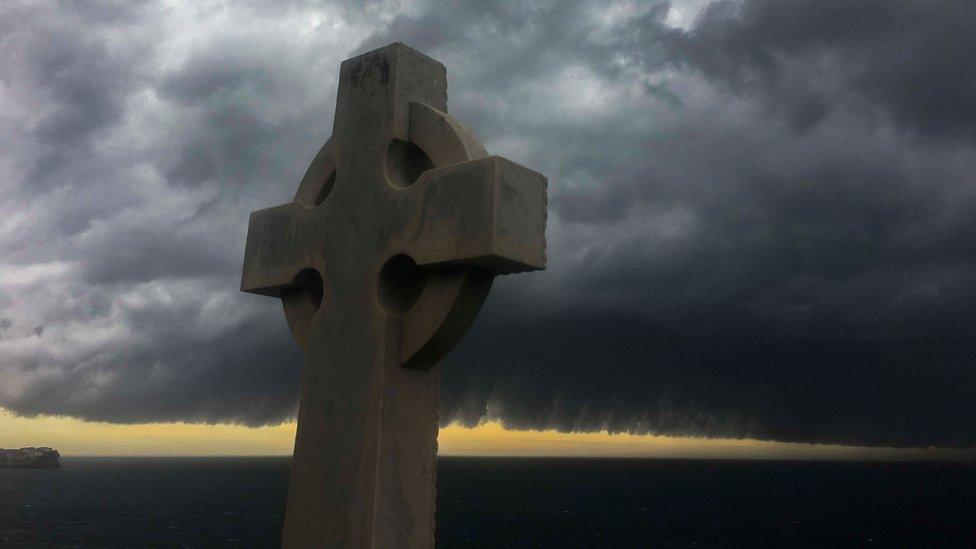Australian rent-a-grave law to be reviewed
- Published

Burials are expensive in New South Wales, with much of the expense going on the burial plot
A controversial law in Australia's New South Wales that allows graves to be "rented out" is going to a public inquiry, reports say.
According to the Sydney Morning Herald, external, the NSW government is going to review rentable graves, after they were introduced into the region's Cemeteries and Crematoria Act in June.
The act allows relatives to rent graves for 25-99 year periods if they can't afford the leasehold fees on their loved one's permanent grave.
The state library of New South Wales says that burials are an expensive business, external, and that a single grave can cost anywhere between A$2,970 and A$4,800 (£2,727; $3,506).
Political issue
The existing law means the headstones of deceased relatives can be removed if relatives don't renew the deceased's plot of land within two years of expiration.
Their remains are dug up, and go into a communal ossuary or "bone room", with the original land then being re-let.
You might also be interested in:
Paul Toole, NSW's Minister for Lands and Forestry, told the Sydney Morning Herald that while the government recognised that burials were a "sensitive issue", renewable graves helped cemeteries stay sustainable.
NSW Jewish Board of Deputies' Vic Alhadeff pointed out in an interview with news.com.au that as the act makes exceptions for religious or cultural groups requiring graves not to be reused, "this means the Jewish community's religious needs in the burial space are not at risk from the newly introduced right to re-use graves".
But the law has been heavily criticised by Australia's opposition party, with Labor politician Mick Veitch saying renewable graves were "macabre" and "impose horrible choices on many families".
He says: "This regulation will lead to two classes of burials: permanent monuments for those who can afford it and those who can't afford it will be forced to see their loved one dug up."
An inquiry into the law by the Upper House Regulation Committee will take public evidence until 7 September, and the review is set to be announced the following month.
Reporting by Kerry Allen
Next story: Slaughtered pigs outnumber Spanish population
Use #NewsfromElsewhere to stay up-to-date with our reports via Twitter, external.